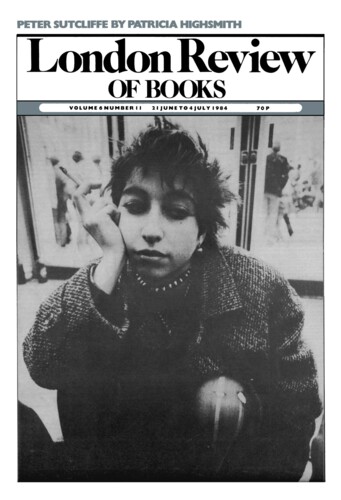Miss Maigret
Patricia Highsmith, 4 October 1984
This book is already celebrated for its suggestion of an incestuous relationship between Simenon and his only daughter, Marie-Jo, a suicide at 25 in 1978. Any such relationship seems to have been one-sided – on the daughter’s part, and that only in her head. Marie-Jo’s contribution to Intimate Memoirs takes up the last 150 pages, and is called ‘Marie-Jo’s Book’. It consists of her early nature-oriented short stories, starting in childhood, and goes through adolescence, to poems and monologues recorded on cassettes in early and brief adulthood, during which time she seemed to be starving for her father’s love, which in a paternal fashion he gave in abundance, as he always had. The preceding six hundred-odd pages are Simenon’s, telling of his first marriage to Tigy, mother of his son Marc, of houses, trips, holidays, of sexual encounters everywhere, of family Christmases. He tells of meeting in New York the young French-Canadian woman called D who was to be his next wife; he describes the births of their three children and the development of their characters. Tigy remained close by, sometimes under the same roof. So did a slowly increasing entourage who tended the ever-enlarging Simenon abode, wherever it might be. Because of the build-up of characters, as in a novel, the collapse of Marie-Jo at the end of Simenon’s account is all the more shocking, and all the sadder, because the reader has seen, and amply, the concern and love of Georges in all of this. The result, when one has read through these pages, is a sense of depression, and of some sympathy for Simenon. By this time, D has taken to drinking a little too much Scotch, and has turned against her husband, not for the usual reasons of infidelity, neglect or mental torture, but because she strove to be ever more important – top dog, in fact. From Simenon’s account, she might win some prize as a bitch.’


